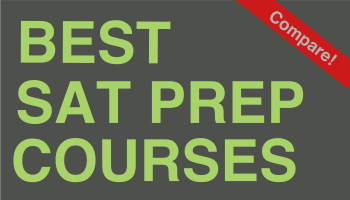
Searching for the right college can be a daunting task. How do you really find the right college for you? Should you look for the highest-rated school, or should you decide based on statistics or cost? There are many questions. Here are some common-sense tips.
Start with yourself.
The most important thing about choosing a college is to make sure it matches you well. Look for a college hat that matches your goals, personality, interests, and who you are as a person. The right college will give you the best experience while at the same time challenging you just the right amount in the right places. Following are some ideas on how to go about that.
College Size
College size should be an important factor in your choice. Small colleges offer a unique environment where you become part of the community naturally and where you get to know your fellow students and professors more easily. Large colleges, on the other hand, require more effort and social skills to establish themselves. But if you are able to find your way around socially, large colleges are great because they offer so many academic and social possibilities. Somewhere in between are the medium-sized colleges. They offer a little bit of both worlds and may be a great choice for you.
Location
Each college has a unique setting. Some are in the middle of a city, others are way out in the country, and many are in-between. Students at urban colleges generally have more access to cultural resources, such as museums, and there is usually more availability of various entertainments. Additionally, urban colleges can sometimes offer more opportunities for internships and collaborative work with companies and institutions.
On the other hand, colleges outside of urban settings offer a generally lower cost of living as well as lower crime rates, which is always an important factor. Students in suburban colleges often look for entertainment within the bounds of their school, which can create a great college experience too.
There are some colleges that offer the best of both worlds, being located near a major city but in a more rural or suburban setting. Again, knowing yourself helps in making a decision.
Don't know your major? No problem!
You may be one of those lucky individuals who knew when they were six what they wanted to study. But most people are not like that. It is almost impossible to make such an important career decision before you start college. Chances are, you will change your mind down the road. So it is OK to start college without knowing your major. You have years to decide down the road.
What about college ratings?
Over the last few years, there has been an incredible race for college ratings. Colleges, on the other hand, try to rate as high as possible in an effort to attract the smartest and best of the students. Students, on the other hand, want to study at highly rated colleges to gain an advantage in their careers. Of course, going to a highly rated college can be a great experience and career asset, but it is not necessarily essential to having a successful career. In many circumstances, employers are more interested in hiring students who have relevant education and experience. So more important than school rating is a good match between student and college.
What can you afford?
It is easy to dismiss good college choices simply because they sound too expensive. As a matter of fact, cost is not necessarily an issue that controls what college you can qualify for. Many colleges are willing and able to subsidize a portion or all of the tuition for students they perceive as a good fit. This may be based on academic performance, but not necessarily. It may be based on the student's sports background or other skills and abilities. Many colleges base their admission decisions without regard to the students' ability to pay the tuition. These are called "need-blind" colleges. So don't disqualify schools just based on cost. Take into account when you look at college tuition that the amount you will actually pay may be much lower.
Grades and test scores
Grades and test scores are important in the college admissions process. Many of the better colleges have clear cut-off points for SAT or ACT test scores. The very top of the colleges are very selective, admitting as few as 6% of applicants. But the good news is that this is very rare. The majority of colleges admit 50–100 of the students who apply. That is where it is important to know yourself. If your grades and test scores are high, you have all the options. If they are lower, there are still many possibilities, but it takes a little research to find good matches. If your grades are very low, you may want to consider a community college first and possibly later transfer to a four-year college.
Visit..Visit..
The Internet is great as a college research tool. But there are limits to that. You don't know if the students pictured on the website are representative. You don't know what the dorm rooms look like or what the students are like, and you don't know what the cafeteria is like. The list goes on and on. If at all possible, visit the school before you apply or before you accept. You will learn so much about the school and how you would fit in. Colleges are very helpful in setting up visits, and they appreciate the interest you are showing for the school.














































